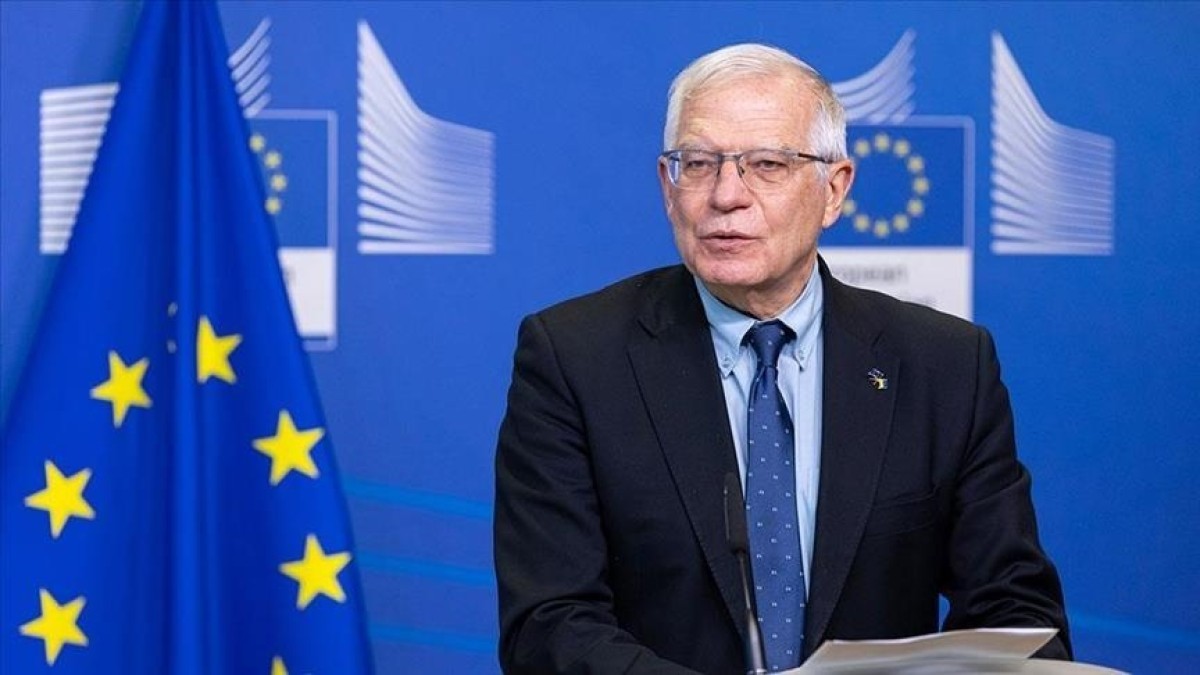The European Union representative says that the Houthi attacks are a direct attack on the interests of the Union


:
European Union High Representative Joseph Borrell said Friday that since the launch of Operation Aspids in February, it has “successfully escorted more than 170 commercial ships and destroyed 19 drones and missiles launched by the Houthis against civilian targets,” adding that the group’s attacks supported From Iran, “a direct attack on the interests of the European Union.”
Borrell added, in a statement he issued during a visit to Larissa, Greece, where the headquarters of the European Operation “SPEEDS” is located in the Red Sea, that the Union will continue to work to limit the capabilities of the Houthis, which spoil the chances of peace, threaten civilians, and endanger maritime security, adding that the mission However, “it will not be enough,” and “we must strengthen our work through political and diplomatic endeavors to help reduce the escalation, and through mediation, to support a peaceful solution to the conflict in Yemen.”
The High Representative of the European Union explained that the Houthis are launching “increasingly sophisticated attacks, and have developed greater capabilities to attack our commercial ships, threatening maritime security and international trade, and endangering regional peace and security.”
In numbers, the European Union representative said that rerouting maritime traffic through the Cape of Good Hope leads to an addition of 10 to 14 days to each trip, “and this means higher costs, and higher costs mean higher prices, and higher prices mean more inflation, and higher prices for materials.” Freight and insurance,” adding, “It is very worrying, as the cost of a container from China to Europe has doubled twice, and the number of ships crossing the Suez Canal daily has decreased by half, which means a huge loss for Egypt and many problems for the global economy.”
He said: “These attacks also have serious consequences for the countries of the region... As is always the case, the poorest people are the most affected, and this applies to Yemen... which led to a significant decline in the flow of goods, by 50% compared to last year,” in addition to “the population suffering from a severe shortage of medicines and foodstuffs, in addition to a significant increase in the prices of basic materials.”
He stressed, “This is why we launched Operation Aspids,” as “its mission is to protect ships under attack, escort ships, and enhance awareness of the maritime situation.”
Borrell reiterated that "Operation Aspedes has a purely defensive mandate. We are not participating in any operation against the Houthis on the ground. Our ships operate for self-defense and to protect targeted ships."
He said, “Aspedes has received great support from day one. Since the beginning of the mission, six Member States have deployed frigates in international waters in the region, and 15 Member States have contributed personnel to the operational headquarters.” He added, “But we are not acting alone. Operation Aspedes coordinates its efforts with the French Operation Agenor [to combat maritime piracy], and with other partners in the region. We have regular contacts with the US-led Operation Sentinel of Prosperity.”
He also said that “Operation Aspedes is a clear example of the European Union’s ability to act effectively as a guarantor of maritime security,” and, referring to his trip to Djibouti, “I look forward to visiting your ships tomorrow morning, to encourage them to continue operating for these purposes.”